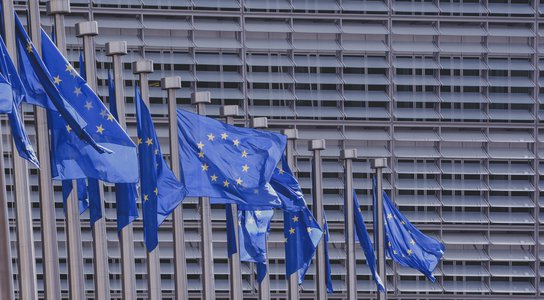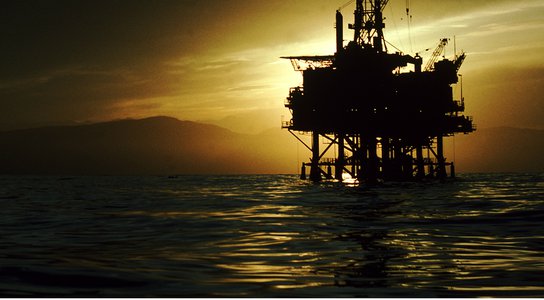The Laundromat, a new film by Steven Soderbergh and boasting an all-star cast including Meryl Streep and Gary Oldman, places the story of the Panama Papers at its centre. More than three years on from the Panama Papers, their impact has been profound.
Government officials and company executives have resigned and been sacked. Criminal charges have been filed. More than $1.2 billion in fines and back taxes have been collected by governments across the world. The trove of data has provided countless leads for further investigations by Global Witness and others – including Out of Africa, and our investigation into millions of dollars being shifted offshore from Indonesian coal companies.
But, arguably, the biggest impact of the exposé has been to affirm the power of transparency as a tool to uncover wrongdoing and to hold the powerful to account.
When the International Consortium of Investigative Journalists (ICIJ) released the Panama Papers in April 2016, the sheer size of the leak was shocking; millions of documents and hundreds of thousands of secret companies, spanning across 2 terabytes of data. Yet, what the data revealed was even more profound: a full cross section of offshore financial industry secrecy that showed countless links to organized crime and serious financial wrongdoing, and exposed a myriad of public officials and high-powered executives using this shadow financial system for private gain.
By November 2016, Europol reported that it had found 3,469 probable matches to criminal and terrorist organizations when they compared the Panama Papers to their own files. Similarly, the Panama Papers provide an evergreen resource for journalists to cross-check as stories develop involving allegedly corrupt actors and politicians, including those currently occupying headlines in the U.S.
The media coverage following the release served to further amplify the Papers’ impact. The Prime Ministers of Iceland and Pakistan were forced to resign, in the latter case Nawaz Sharif was, barred from holding high office, fined $10.6 million, and finally sentenced to imprisonment. As recently as this August the US announced four individuals will face trial there related to the Panama Papers, whilst Canada’s Royal Bank closed more than forty bank accounts after Panama Papers audits. The ICIJ have done a great job in tracking the impact of the Papers, a summary of which you can read here.
The Panama Papers validated the work of transparency campaigners like us at Global Witness who document how opaque shell companies, shadowy lawyers and complicit banks are constant parties to some of the biggest corruption scandals. We are encouraged by the swift calls from the global community for action in the wake of what the Papers revealed.
Over time, however, much else has changed. The political climate in the U.S., UK and elsewhere is filled with talk of ‘fake’ news, alternative facts and conspiracy theories on both ends of the political spectrum. The Panama Papers have been caught in the gravity of this; links to data found in the Papers are often pointed to as unassailable proof that dirty deeds are being done.
It is true that sometimes where there’s smoke, there’s fire. But, as this film hits the screens, it’s important to step away from today’s scandals and recognize the real value of the information contained in this unusual database. The Panama Papers are not like a treasure chest filled with scandals to be exhumed (though that may be true in some cases). Rather, the Papers are a vital repository of keys needed to unlock the scandals of today, and tomorrow.
This distinction matters because in many cases, we already know or suspect what scandals are out there. But, often we lack critical information to connect the dots, prove a case and use that proof to hold powerful actors accountable for their actions.
We’ve seen use of the kind of anonymous companies found in the Panama Papers turn up in our investigations—from unknown individuals who acquired a network of offshore-owned companies which in turn invested in £147million worth of prime property in some of London’s most famous addresses, to bribery allegations in Africa linked to major U.S. hedge funds. Sometimes we’re able to uncover the true owners of these companies and crack the case. More often, we and others are stymied by anonymity; the truth remains hidden, justice is not served.
This is why we advocate for transformative transparency initiatives like those related to conflict minerals and revenue transparency in extractive industries, as well as new registries coming online in the UK and EU that require companies to reveal their true owners.
We shouldn’t have to wait for massive leaks like the Panama Papers to shed light on the inner workings of criminal and corrupt activities. We’re certain there will continue to be corruption scandals and criminal activity that we and others will need to investigate to determine the truth. However, until we’re able as a society to make transparency the rule, not the exception, both the real story and the transformative change we seek, making corruption and conflict a thing of the past, will elude us all.
Whilst many of the scenarios portrayed in the Laundromat are fictional, the world of global financial secrecy the Panama Papers opened a window to is sadly often all too real. Mossack and Fonseca have already begun legal proceedings against the film. Let’s not only remember the stellar work of the global team of journalists who delivered the Panama Papers to the world and the valuable information they contain; let’s remember why such information – and such revelations – are important in the first place.
Updated 18 October 2019


